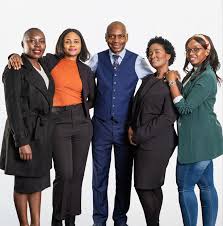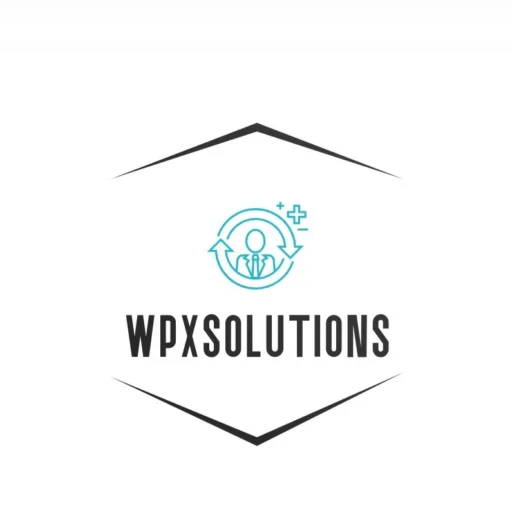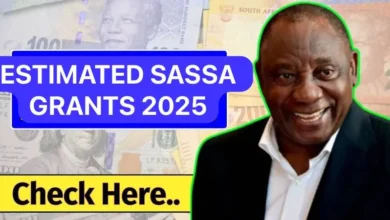Bankseta Learnerships: Your Complete Best Qualifications

Bankseta Learnerships: Your Complete Qualification List & Eligibility Guide
Bankseta learnerships offer a great chance for anyone wanting to work in South Africa’s banking and finance world. These programs help people gain real-world skills along with a formal qualification. They close the gap between classroom ideas and what you do every day on the job. This article will show you the different qualifications Bankseta offers. We’ll also cover what you need to qualify and how these programs lead to a good career.
Getting started in money services can feel tough. Bankseta learnerships give you a clear path. They teach you the exact skills banks want. Knowing the types of qualifications out there and what you need for each is your first big step. It sets you up for a rewarding job in this busy field.
Understanding Bankseta and Its Role in Financial Sector Development
What is Bankseta?
Bankseta stands for the Banking Sector Education and Training Authority. It guides skill growth for banks and finance companies in South Africa. Bankseta creates training plans and sets standards. It also helps fund learnerships and other learning programs. The group makes sure the financial world has the right skills.
The Importance of Learnerships in the Banking Sector
Learnerships are key for the banking industry. They fill skill gaps. They also help young people find jobs. These programs build a steady stream of trained workers. A strong financial team helps the economy grow. Many young South Africans, about half of those aged 15-34, are looking for work. Learnerships offer a direct way to gain experience and join the workforce. This helps both the people and the country.
Bankseta Learnerships: Key Qualification Categories
Financial Services Operations Qualifications
These qualifications teach you the basics of working in finance. They are good for entry-level roles. You learn how banks run day to day. Bankseta Learnerships
Here are some examples of what you can study:
- National Certificate: Financial Services Operations (NQF Level 4)
- Further Education and Training Certificate: Financial Services Operations (NQF Level 5)
You will learn key skills. These include helping customers, doing office tasks, and understanding basic bank products. You also get to know about rules banks must follow.
Banking Qualifications
These programs teach you about the main jobs in banking. They get you ready for core bank duties. You might work in different parts of a bank.
Common qualifications here are:
- National Diploma: Banking (with choices like Retail Banking or Commercial Banking)
- Certificates linked to checking credit, managing client money, or planning finances
You will gain skills like looking at money data and working with clients. You’ll also learn about selling products and checking for risks.
Other Relevant Financial Sector Qualifications
Some learnerships cover other areas linked to banking. These jobs often work with bank tasks. They can expand your career options. Bankseta Learnerships
Think about these kinds of qualifications:
- Bookkeeping and Accounting certificates
- Short courses on rules or stopping fraud
- Qualifications in insurance or how to manage investments

You will pick up skills like keeping financial records. You’ll also learn about rules that guide the industry. And you’ll understand money growth ideas.
Eligibility Criteria for Bankseta Learnerships
General Requirements
Most Bankseta learnership programs ask for certain things. You must be a South African citizen. Your age often needs to be between 18 and 35 years old. You also need a Grade 12 (Matric) certificate. Sometimes, you need to have passed certain subjects. Always check the specific rules for each learnership you want to join. Bankseta Learnerships
Specific Qualification Prerequisites
What you need to get in can change. It depends on the learnership qualification you choose. For example, a National Certificate might just need a Grade 12 pass with Maths literacy. But a National Diploma might need Grade 12 with pure Mathematics. Some programs also look at what you have learned before. A Bankseta leader explains that meeting these exact entry rules is super important. It shows you’re ready for the training.
Additional Selection Criteria
Other things can play a part in getting picked. Banks might ask you to take special tests that show your skills. You will likely have an interview. You might also write a letter explaining why you want the job. Some programs like to see if you have any past work or volunteer experience. Practice for these extra steps. They help you show your best self. Bankseta Learnerships
Benefits and Career Pathways Post-Learnership
Skill Development and Practical Experience
Learnerships give you real-world experience. You learn by doing. Imagine working side-by-side with bank staff. You gain skills like managing money better. Your communication skills grow too. You learn how to solve problems and talk to customers. You also get good at using special banking computer programs. You will successfully help bank clients with confidence. Bankseta Learnerships
Employability and Career Progression
Finishing a learnership makes you more likely to get a job in banking. It opens doors. You can start in jobs like a Bank Teller or a Client Service Associate. Many Bankseta graduates quickly find jobs after their program ends. You might even train to be a Credit Analyst. As you gain experience, you can move up. You could become a manager or work in a special banking role.
Further Education and Professional Development
A learnership is a strong start for more learning. It can help you go on to get a university degree. You could also get special job certifications. For instance, you might work towards a certification from the Financial Planning Institute. Always look for chances to learn more. This helps you reach your career goals.
How to Find and Apply for Bankseta Learnerships
Identifying Available Learnerships
Finding learnerships is easy if you know where to look. Start with the Bankseta website. Major banks in South Africa also list openings on their career pages. Check job websites that bring many job ads together. Government employment sites are also a good place to search. Set up job alerts on these sites. This way, you hear about new chances quickly. Bankseta Learnerships
The Application Process
Applying for a learnership has a few steps. First, make a good CV and cover letter. Then, fill out any online forms the bank provides. You will need to send in copies of your ID and school certificates. After that, expect to go through selection tests. Make sure your application fits the specific learnership. Show your skills and why you want the program.
Tips for a Successful Application
Want to get accepted into a learnership? Do your homework on the bank and the program. Read everything you send in very carefully. Get ready for interviews and tests. Show that you are eager to learn and ready to work hard. A bank recruiter often looks for folks who show real excitement and a desire to learn. This can make you stand out.
Conclusion: Your First Step Towards a Banking Career
Bankseta learnerships are a clear path to getting the skills and qualifications you need for a banking job. By knowing your choices and meeting the rules, you can apply well. This greatly boosts your chances of getting hired. It also builds a solid base for your work life.
Doing a learnership is an investment in your future. It gives you official papers and real-world work time. You also get to see how the industry works. This makes you a strong job candidate. Take the time to find these opportunities. Start your journey toward a good job in South Africa’s important financial world.
view nyda yes programmes




